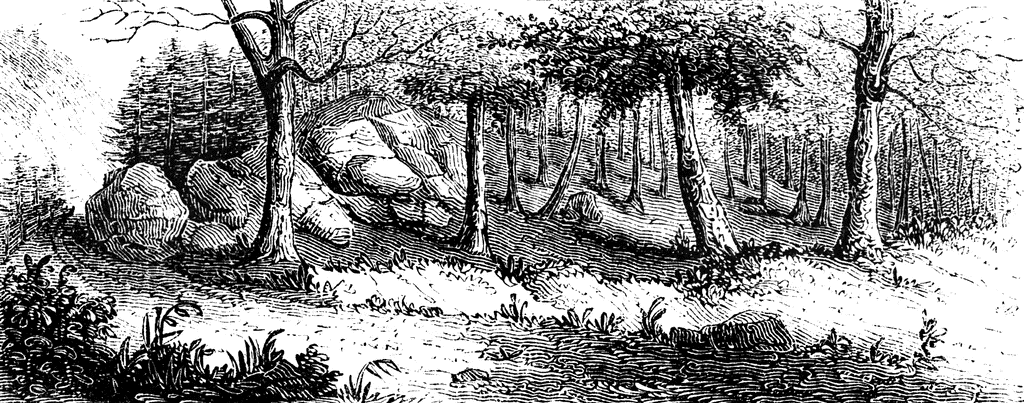A Hoax about a Hoax
On 29 Mar 1781, a blacksmith named Benjamin Montanye (1745–1825) was detained near Haverstraw, New York, by a Loyalist squad under Lt. James Moody.
Moody discovered Montanye was carrying several letters from Gen. George Washington to Philadelphia. He had Montanye hauled into New York City and jailed.
Eventually Montanye was released and became Baptist preacher in Orange County. He talked about his experience in a fashion that led to this story as a footnote in Benson J. Lossing’s Pictorial Field-Book of the Revolution:
Except, as Jeffrey L. Zvengrowski wrote in an article for Washington’s Papers in January, that story of a hoax was itself a hoax.
James Rivington did print one of Washington’s intercepted letters in his Royal Gazette on 4 April, a message to his cousin and plantation manager Lund Washington dated 28 March, but it didn’t mention any attack plans.
The Papers of Gen. Henry Clinton contain other Washington letters, apparently from the same mailbag:
Zvengrowski writes: “Washington’s letter to Harrison was not printed for fear among British commanders at New York City that knowledge of its contents would generate pressure upon them to launch an invasion of New Jersey!” Thus, the general using those letters to manage opinion was actually Clinton.
Another reason to doubt the story printed by Lossing is that Washington didn’t make plans with the French general Rochambeau to leave the New York theater and besiege Gen. Cornwallis in Virginia until several weeks later. At that point the Continentals probably did try to fool the enemy about their plans. But not back when Lt. Moody captured Montanye.
Moody discovered Montanye was carrying several letters from Gen. George Washington to Philadelphia. He had Montanye hauled into New York City and jailed.
Eventually Montanye was released and became Baptist preacher in Orange County. He talked about his experience in a fashion that led to this story as a footnote in Benson J. Lossing’s Pictorial Field-Book of the Revolution:
[Washington] directed the messenger to cross the river at King’s Ferry, proceed by Haverstraw to the Ramapo Clove, and through the Pass to Morristown.The frightening experience of being captured by the enemy thus became part of a clever ruse by the great Gen. Washington.
Montaigne, knowing the Ramapo Pass to be in possession of the Cow-boys and other friends of the enemy, ventured to suggest to the commander-in-chief that the upper road would be the safest. “I shall be taken,” he said, “if I go through the Clove.”
“Your duty, young man, is not to talk, but to obey!” replied Washington, sternly, enforcing his words by a vigorous stamp of his foot.
Montaigne proceeded as directed, and, near the Ramapo Pass, was caught. A few days afterward he was sent to New York, where he was confined in the Sugar House, one of the famous provost prisons in the city.
The day after his arrival, the contents of the dispatches taken from him were published in Rivington’s Gazette with great parade, for they indicated a plan of an attack upon the city. The enemy was alarmed thereby, and active preparations were put in motion for receiving the besiegers.
Montaigne now perceived why he was so positively instructed to go through the Ramapo Pass, where himself and dispatches were quite sure to be seized. When they appeared in Rivington’s Gazette, the allied armies were far on their way to the Delaware.
Montagnie admired the wisdom of Washington, but disliked himself to be the victim.
Except, as Jeffrey L. Zvengrowski wrote in an article for Washington’s Papers in January, that story of a hoax was itself a hoax.
James Rivington did print one of Washington’s intercepted letters in his Royal Gazette on 4 April, a message to his cousin and plantation manager Lund Washington dated 28 March, but it didn’t mention any attack plans.
The Papers of Gen. Henry Clinton contain other Washington letters, apparently from the same mailbag:
- 23 March to Francisco Rendon, a Spanish diplomat in Philadelphia.
- 27 March to Continental Congress delegate Benjamin Harrison. (This was at least the second time the correspondence between those two Virginians was waylaid.)
- 29 March to dentist John Baker.
Zvengrowski writes: “Washington’s letter to Harrison was not printed for fear among British commanders at New York City that knowledge of its contents would generate pressure upon them to launch an invasion of New Jersey!” Thus, the general using those letters to manage opinion was actually Clinton.
Another reason to doubt the story printed by Lossing is that Washington didn’t make plans with the French general Rochambeau to leave the New York theater and besiege Gen. Cornwallis in Virginia until several weeks later. At that point the Continentals probably did try to fool the enemy about their plans. But not back when Lt. Moody captured Montanye.


No comments:
Post a Comment